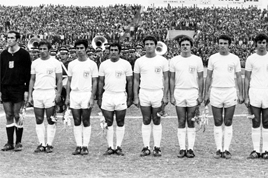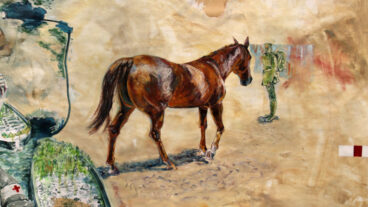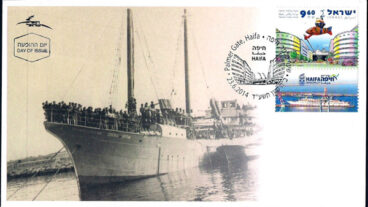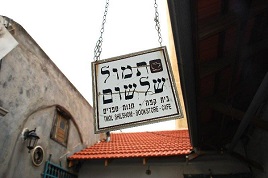The 1970 FIFA World Cup, which took place from 31 May to 21 June 1970 in Mexico, was a “Mondial” of many firsts. It was the first World Cup tournament to be staged in North America, and the first held outside Europe and South America. It was the first time that the World Cup was broadcast in color.
It was also the first and only time — thus far — that the Israeli national football team, then led by legendary coach Emmanuel Scheffer, qualified for the World Cup.
It was also a first for dividing the 16 teams into four geographical groupings which, according to Wikipedia, “ensured that Israel and Morocco would not be drawn to face each other after Morocco had earlier threatened to withdraw from the tournament, as they had done from the Olympic football tournament two years earlier…” Fellow Asian group member North Korea refused the possibility of playing in Israel and withdrew from the competition.
In the end, the 1970 tournament was won by Brazil who defeated Italy, 4–1 in the final.
Israel’s FIFA affiliation began in 1929 but during the 1950s and 60s, it wasa more active as a member of the Asian Football Confederation (AFC); Israel hosted and won the AFC Asian Cup in 1964, and was a finalist in 1956 and 1960. However, Israel left the AFC in 1974 because of political issues.
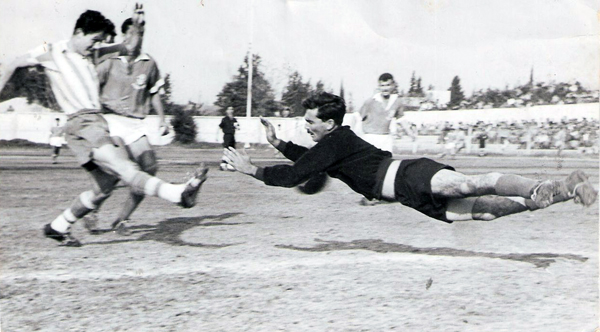
Image: Israel football game, 1950s. Nahum Stelmach (left). Courtesy of Pikiwiki Israel.
During the 1980s, Israel played most matches against European teams, and competed in the European stage of qualification for the 1982 FIFA World Cup. In 1991, Israeli clubs began participating in European club competitions, and returned to European World Cup qualifying in 1992.
Israel rejoined UEFA — the governing body of European football — as a full member
in 1994. Israel’s team was unbeaten in their first five UEFA European Championship qualifiers but to date Israel has not yet qualified for a major tournament.
Israel’s performance has been “mixed” according to FIFA, “They [Israel] tend to win more qualifying matches than they lose, and indeed went through the entire 2006 World Cup qualifying campaign unbeaten, but have frequently been undone in the big games against direct rivals.”
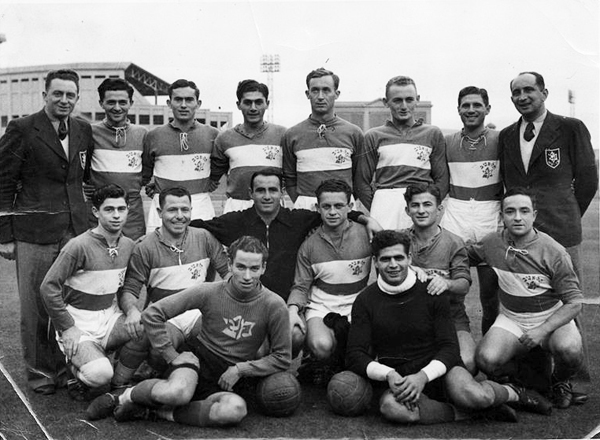
Image:Maccabi Tel Aviv Football Club, 1939. Courtesy of Pikiwiki Israel.
“Third is the best the team has managed since, although under Frenchman Luis Fernandez there was hope they could edge ahead of either Greece or Croatia and take a UEFA EURO 2012 play-off place.”
“However, defeats against both within the first four games put Israel up against it. Optimism was restored by three successive wins, but failure to take anything from the return matches with the top two resulted in another third-place finish.”
The most memorable European matches for Israel have been its EURO debut – a 2-1 win over Poland in the ’96 qualifying round when Ronen Harazi scored two points and went on to victory; a 2-1 win against Russia in the UEFA EURO 2008 qualifer “when a late Omer Golan goal earned victory against the side that would make the semi-finals” and, a 5-0 victory against Austria in the UEFA EURO 2000 qualifier when Eyal Berkovic “struck twice in what is widely considered the country’s finest triumph.”
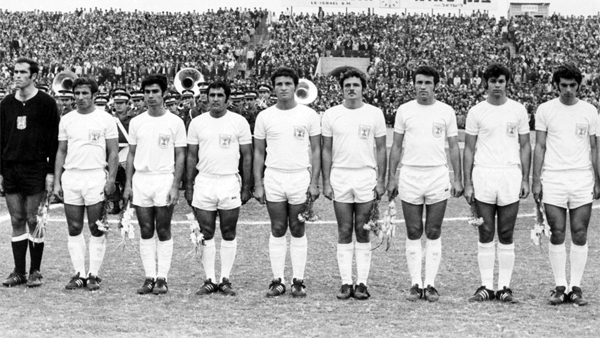
Image: Israeli national football team, World Cup Finals 1970




